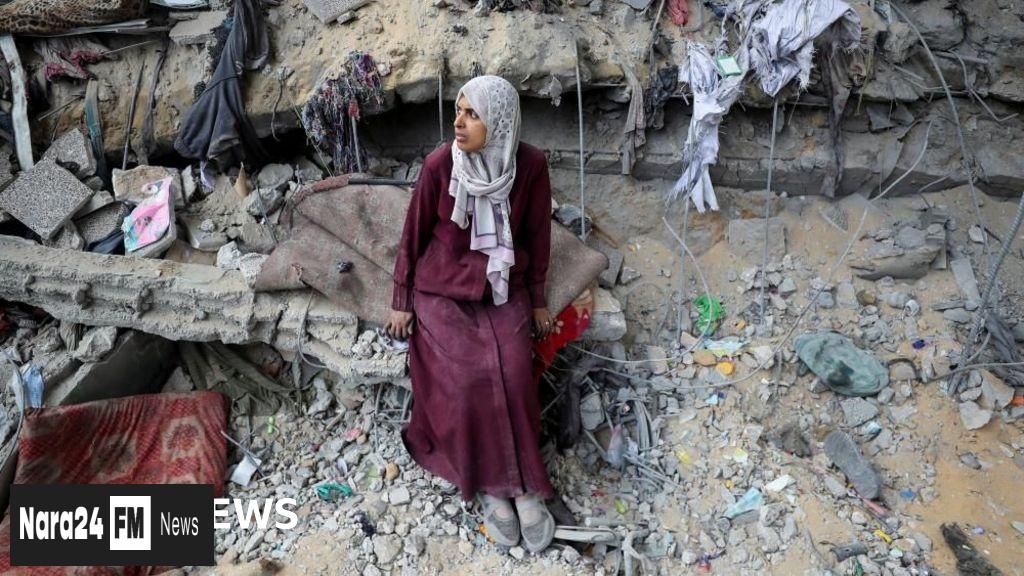
FIFA President Faces Scrutiny Over Controversial Award to Trump
FIFA's ethics committee is reviewing allegations that Gianni Infantino violated the organization's political neutrality rules by honoring U.S. President Donald Trump with a peace prize.
US President Donald Trump revealed that Israel has accepted conditions for a 60-day Gaza ceasefire, urging Hamas to accept the deal as negotiations continue.

US President Donald Trump has announced that Israel has agreed to the "necessary conditions" to finalize a 60-day ceasefire in Gaza. In a post on Truth Social, Trump stated, "We will work with all parties to end the war," though he did not specify the details of the conditions. He praised Qatar and Egypt for their efforts in facilitating the deal and urged Hamas to accept the proposal, warning that the situation "will not get better—it will only get worse."
Israel's ambassador to the United Nations, Danny Danon, confirmed that Israel is "absolutely" ready for a ceasefire. However, it remains uncertain whether Hamas will agree to the terms of the proposed deal. The announcement comes ahead of a scheduled meeting between Trump and Israeli Prime Minister Benjamin Netanyahu next week, during which the US president has vowed to take a "very firm" stance.
Trump expressed confidence that Netanyahu is committed to ending hostilities in Gaza. "He wants to. I can tell you he wants to. I think we'll have a deal next week," Trump said. Meanwhile, Israeli Strategic Affairs Minister Ron Dermer is set to meet with US officials, including special envoy to the Middle East Steve Witkoff, Secretary of State Marco Rubio, and Vice President JD Vance, to discuss the ongoing negotiations.
Danon accused Hamas of "playing hardball" in the negotiations, emphasizing that Israel is prepared to increase military pressure if the group refuses to cooperate. "The war will end when the hostages are back home," he added. Approximately 50 Israeli hostages remain in Gaza, with at least 20 believed to still be alive.
Efforts to broker a ceasefire and secure the release of hostages have intensified in recent weeks, but negotiations remain stalled. Israel has maintained that the conflict will only end with the complete dismantling of Hamas, while the group has called for a permanent truce and the withdrawal of Israeli forces from Gaza.
The announcement follows Israel's recent evacuation orders in northern Gaza, signaling potential escalations in military action. Earlier this week, at least 20 Palestinians were killed in an Israeli airstrike on a Gaza City cafe. The conflict, which began after Hamas's October 7, 2023, attack on Israel, has resulted in over 56,000 deaths in Gaza, according to the Hamas-run health ministry.
In a related development, the Israeli military is investigating reports of civilian casualties near aid distribution centers in Gaza, operated by the US- and Israeli-backed Gaza Humanitarian Foundation (GHF). Over 170 NGOs, including Oxfam and Save the Children, have called for the organization's closure, accusing Israeli forces of targeting Palestinians seeking aid. Israel denies these allegations, asserting that the GHF is essential for bypassing Hamas interference in aid distribution.
A previous ceasefire deal collapsed in March when Israel launched pre-emptive strikes, citing Hamas's preparations for terror attacks. The earlier agreement, which began on January 19, aimed to establish a permanent ceasefire, exchange hostages for Palestinian prisoners, and withdraw Israeli forces from Gaza but failed to progress beyond its initial stage.
Comments (0)
Leave a Comment
Be the first to comment on this article!